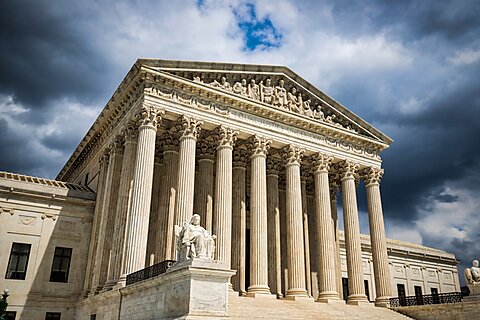Anastasia P. Boden, Brent Skorup, and Christopher Barnewolt
The Supreme Court has said that political speech “occupies the ‘highest rung of the hierarchy of First Amendment values,’ and is entitled to special protection.” Yet lawmakers frequently target political speech and advocate for special regulation. A recent case, No on E v. Chiu, raises the question: When Americans want to engage in political speech, to what extent can the government compel them to include its own desired speech as well? According to the Ninth Circuit Court of Appeals, the answer seems to be that there is no limit—localities can even make the government‐mandated speech the primary message in someone else’s political ad. Such a result flies in the face of the First Amendment.
This case arose because San Francisco campaign finance law is stricter than state law. Critically, local rules require campaign ads to name the top two donors to each of the speaker’s top three donors, if any of those donors is also a committee. These disclaimers are required on video, audio, and print ads.
This means that political ads in San Francisco are required to name up to nine donors (and donors’ donors), those parties’ contribution amounts (for print ads), and a statement that financial disclosures are available online. Violations of these local laws are punishable by civil, criminal, and administrative penalties.
Not surprisingly, these mandated disclosures take up much time and space in a typical advertisement. Todd David, founder of the local “No on E” political campaign, found that the requirements consumed over 30 seconds. In all, San Francisco’s compelled speech would consume over half of the screen for portions of video ads, most of the time of No on E’s short video ads and huge portions of their print ads and mailers.
In addition to the displacement of political speech caused by San Francisco’s commandeering of No on E’s political ads, these regulations seriously burden people’s freedom of association. That’s because a mandate to publicize donors’ donors can mislead and confuse voters since those donors‐once‐removed may have no knowledge of the political campaign in question, let alone support it. For instance, one of No on E’s top donors—the Ed Lee Dems PAC—withdrew its support from the No on E campaign because the mandated disclaimers would give voters the false impression that the PAC’s donors supported the campaign.
Todd David sued the government, alleging that San Francisco’s rules violate the First Amendment. When David’s case, No on E. v. Chiu, reached the Ninth Circuit Court of Appeals, the court determined that “exacting scrutiny” applies to San Francisco’s regulations of political speech and found that the law was constitutional under this standard. No on E appealed that ruling to the US Supreme Court.
The Cato Institute submitted an amicus brief to the Supreme Court in No on E. v. Chiu, urging the court to grant certiorari and make clear that strict scrutiny—not exacting scrutiny—is the correct standard for evaluating compelled speech laws like San Francisco’s. While the court has applied exacting scrutiny in the narrow context of campaign finance disclosures and disclaimers, San Francisco’s regulations are fundamentally different.
San Francisco’s mandated combination of disclosures and disclaimers—extended even to donor’s donors—directly burdens core political speech and the freedom of association.
The Ninth Circuit’s decision opens the door to onerous new state and municipal restrictions on Americans’ right to participate in the political process. The Supreme Court should grant No on E’s petition and prevent this type of novel interference with First Amendment rights.

